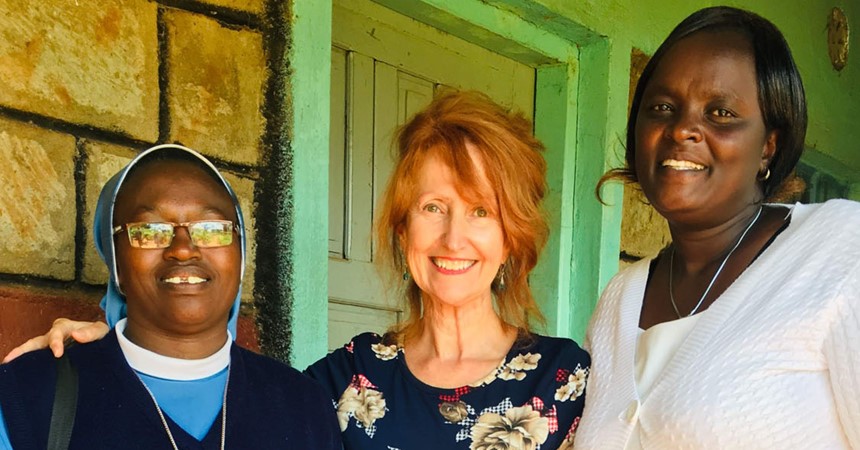For many children in orphanages this is their story — a one-way journey into an institution without hope of another chapter in their childhood. Sometimes a single event or circumstance for a family can result in a child being separated from siblings, parents, extended family members and their communities forever.
I met 12-year-old David during the recent year I spent in the Kenyan highlands. My role was to develop another pathway in the life journey of children living in institutional care. Working alongside dedicated Kenyan social worker and manager of the orphanage, Anne Kinthuia, I provided technical advice as we developed a program and built a small team. This was to undertake the complex task of the Kivuli orphanage transitioning the children into family-based care and providing the framework for follow up support and community mobilisation.
As we unpacked each child’s history, we found that David came into the orphanage after his mother died and his father had left the family. Over time we uncovered fragments of David’s story that eventually led us to find not only his grandmother (“sho sho”) and other family members, but also that his six-year-old brother Peter, attended the same school. Peter lived in another orphanage in the same small town.
The day after reuniting the boys, David excitedly ran home from school and told the staff that as soon as he arrived at school that morning, he looked for Samuel. Then at morning break Samuel came to find him and they played together during each of the school breaks. Over time opportunities were arranged for the boys to play together outside of school and build a relationship. At the same time our team continued to follow leads that built a story and connections to David’s history. After several months a day came where we travelled on dusty roads to the northern part of the province, both boys dressed in their best clothes, to meet their sho sho, older sister and brother, aunt and cousins. Seeing their 94-year-old grandmother greet the boys with a traditional Turkana blessing by placing her hand on their head as she greeted them was a day that captured the true purpose of my trip.
Family tracing is vital to ensuring children are reconnected. It is a basic step that is often overlooked and results in children remaining in institutional care, alone, for the rest of their childhoods. There is no “exit” strategy until they turn 18.
This most recent journey in advocating for children to grow up and thrive in safe and loving families, and not institutions, took me to East Africa for most of 2019. During that time the staff and I worked closely with government child-protection authorities, providing awareness raising, training and case- management skills to people running many orphanages in the district. Connections built at the national and local level allow the staff to continue to be advocates and leaders in change in their district.
Over a 12-month period we were able to find homes for all the children in the orphanage. In keeping with statistics in other developing country contexts, many children had a parent or an extended family member who loved them but required support to allow them to bring the children home. For the small number of children who didn’t have safe families to return to, the traditional concept of “taking a village to raise a child” came to life as foster families, locally known as “well-wishers”, were identified through local churches and became their “forever families”.
Living with the children and Ms Kinthuia and working closely with staff and within a small rural community, I came to learn much about local culture and customs, the factors that contribute to family fragmentation in the Kenyan context, the strength and commitment of the team and the love of the families.
The process of building the framework of systems, knowledge and skills in case management, child and family assessments, and providing strong follow-up mechanisms was always hard work, especially without electricity and basic facilities, exhausting, delightful, funny, stimulating, heartbreaking and heart-warming. Another extraordinarily rich and rewarding year of my life where I know more children are living in families, not institutions.
We are in a time in history that challenges us to look at the way we care about children. Neuroscience has the evidence we need to know — that love, belonging, attention and interaction are what is needed for a child to thrive. This care is best provided in a family setting, not an institution. People genuinely want to help children in orphanages as they assume the children have no families but as with David, this is not the case for most children.
I encourage each of you to make a difference by supporting family-strengthening projects rather than orphanages, so children can grow up in safe and loving environments within their culture and their community.
In the future I hope to work with leaders in the Catholic community to increase awareness and advocate for change in the way we care for children in developing countries.























































































